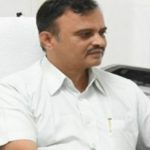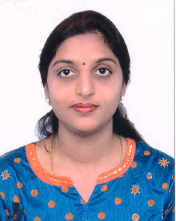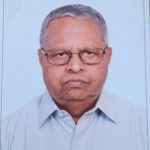
Faculty

Program director & Workshop Chair
Dr. S. Chandrashekara MD, DNB, DM, Medical Director, ChanRe RICR
Over 20 years of experience in rheumatology & clinical immunology. Immensely contributed to innovative research work on autoimmune diseases with over 100 paper publications. President of Karnataka Rheumatology Association and President Elect of Indian Rheumatology Association, Dr. Chandrashekara’s work encompasses research on disease modelling and statistical analytics.
Dr. KP Suresh,PhD (Biostatistics)
Over 15 years of experience as biostatistics scientist with expertise in Research Methodology, Biostatistics, Epidemiology, Disease Modelling, Meta-analysis, Remote sensing & GIS modelling, currently working as Principal Scientist, ICAR-NIVEDI, Bangalore. Prof. P.C. Mahalanobis National Award in Official Statistics, 2022 holder and Stanford University World Ranking top 2% scientists (2019)–Rank (1105), C-Score-3.03


Dr. P. Renuka DCP, DNB NABL Assessor,
Director & Pathologist ChanRe Diagnostics Laboratory, Bangalore
Over 20 years of experience in clinical pathology. Academic excellence award holder with several International and National indexed publications. Scientific contributions in disease pathology and several immune related abnormalities
Dr. D. Sridaran MD, D.Bact
Chairperson, IEC-ChanRe RICR
Former President & Secretary – Karnataka Chapter of Indian Association of Medical Microbiologists
Close to 40 years of experience in medical microbiology as a teacher, administrator, policy maker, and a research guide for PG students, Dr. Sridaran also serves as the Administrator for IARET and Executive Committee Member for the Society of Inflammation Research.


Dr. Ramya G. Rao, Ph. D (Biochemistry),
Consultant, OHAI project (funded by The Pennsylvania State University, USA)
CisGEN Biotech Discoveries Pvt. Ltd.
Over 10 years of experience in research and development and 5 years of experience in biostatistics, hands on experience in research methodology, data analysis, meta- analysis and other statistical models, have published various papers in international and national journals.
Content
1. How to write a research questions?
2. Statistical principles in Clinical studies
a) Introduction
b) Background and purpose
c) Scope and direction
3. Considerations for overall clinical study development
a) Development plan
b) Confirmatory study
c) Exploratory study
d) Population
e) Primary and Secondary variables
f) Composite variables
g) Multiple primary variables
h) Surrogate variables
i) Categorized variables
4. Design techniques to avoid bias avoid bias
a) Blinding
b) Randomization
5. Clinical Study Considerations
a) Parallel Group Design
b) Crossover Design
c) Factorial Design
d) Multicentre studies
6. Types of comparisons
a) Studies to show superiority
b) Studies to show Equivalence or non-Inferiority
c) Studies to show Dose-response relationship
d) Group Sequential designs
7. Sample size estimation
8. Data capture and processing
9. Study conduct considerations
a) Study monitoring and interim analysis
b) Changes in inclusion and exclusion criteria
c) Accrual rates
d) Sample size adjustment
e) Interim analysis and early stopping
10. Data analysis considerations
a) Pre specifications of data analysis
b) Analysis sets: Full analysis set, per protocol set and roles
c) Missing values and Outliers
d) Data transformations
e) Estimation, confidence interval and Hypothesis testing
f) Adjustment of significance and confidence interval
g) Sub-setting of data and subgroup analysis
h) Interactions and covariates
i) Integrity of data and computer software validity
11. Role of clinical laboratory in research
12. Evaluation of safety and tolerability
a) Choice of variables and data collections
b) Set of subjects to be evaluated and presentation of data
c) Statistical evaluation
d) Clinical evaluation
13. Reporting
a) Evaluation and reporting
b) Summarize: Efficacy and Safety
14. How to write and evaluate a research report?
15. Ethical issues in clinical research
Fee for this course is Rs 300/- only
